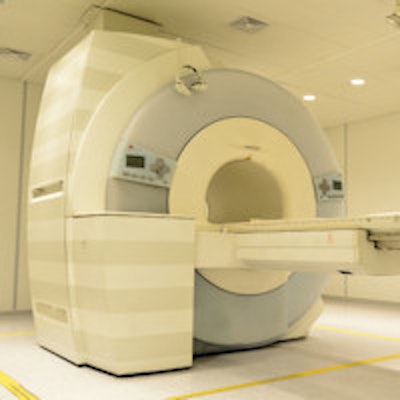
Despite the thrashing that medical imaging has taken over the past 10 years, primary care providers (PCPs) still say that imaging improves clinical decision-making and patient care, according to a new study published online in the Journal of the American College of Radiology.
The study results show that imaging is valuable to physicians outside of the world of radiology -- which could influence the decisions of policymakers, said lead author Christine Hughes from the Hadley Hart Group in Chicago.
"There really haven't been any clear value metrics developed which could be used in policy decisions on reimbursement for imaging," she told AuntMinnie.com. "In our field, it's a given that imaging has value, but we've come up short trying to articulate that to payors and policymakers. We hope our data can be used to educate payors and PCPs about the value of imaging."
Email survey
For the study, Hughes' team sent survey invitations via email to more than 2,000 general practice, family practice, and internal medicine providers. Physicians were drawn from an online panel kept by Harris Interactive, an independent polling firm. The invitation did not specify that the survey was about imaging, it only said that it was about "healthcare." Each participant received a $50 honorarium to complete the survey; 500 physicians were included in the study (JACR, January 26, 2015).
The mean age of survey participants was 51 years. The majority of physicians were male (78%), had been in practice for a mean of 19 years, and were in a single-specialty practice (48%). Hughes and colleagues also found that most physicians were in suburban areas (46%), with 23% in small towns, 20% in large urban areas, and 10% in rural environments.
The survey participants responded as follows:
- 90% said imaging provides data not otherwise available.
- 88% said imaging allows them to be more confident in their diagnoses.
- 88% said imaging allows them to make better clinical decisions.
- 88% said imaging allows them to be more confident in treatment decisions.
- 86% believe imaging shortens the time to definitive diagnosis.
- 85% believe the quality of care their patients receive would be negatively affected without the use of imaging.
The researchers also outlined why primary care physicians order imaging, including the top three factors:
- For information that can only be obtained from a particular study (91%)
- Because of the potential severity of the patient's suspected condition (88%)
- Because of the disease category of the patient's suspected condition (74%)
Physicians whose clinical careers began before advanced imaging was widely available tended to value it more highly, while less-experienced physicians took it for granted, Hughes and colleagues found.
"Also of interest was the difference in how more- versus less-experienced physicians viewed medical imaging as a clinical timesaver," the authors wrote. "In an increasingly hectic clinical service environment, imaging may be partially replacing time previously spent talking with and examining patients."
Another surprising finding was that primary care physicians do not have an accurate understanding of the cost of advanced imaging exams. For example, they tended to assume that the cost of an MR exam was three times higher than it really is, the group found.
"Pricing transparency should be a priority for radiology groups as they interact with referring physicians to combat the misrepresentation that imaging costs are what's wrong with the system," Hughes told AuntMinnie.com. "But it's also amazing that even when PCPs believed that an exam costs three times more than it actually does, they still ascribed a high value to it."
In the qualitative section of the survey, primary care providers gave very positive comments about advanced imaging's value, according to Hughes. These included the following:
- "Imaging is my partner."
- "If I did not have these tests, I would not practice anymore. Period."
- "I can nail my diagnoses every time. It guides my therapy, and I get better outcomes."
- "My treatment decisions hinge on the study. I know I am going down the right treatment path and have a resolution."
The researchers hope their study will start a conversation between radiologists and primary care providers, and give PCPs a sense of how their peers feel about advanced imaging, Hughes said.
"There's a great deal of downward pressure on PCPs to monitor their use of imaging," she said. "But the message from our data is that primary care providers believe advanced imaging leads to better outcomes."




















